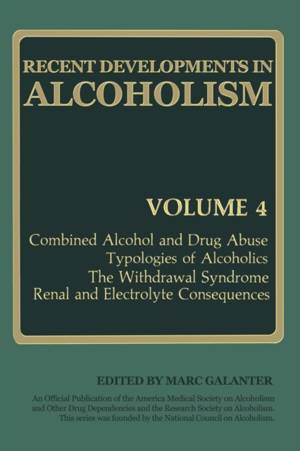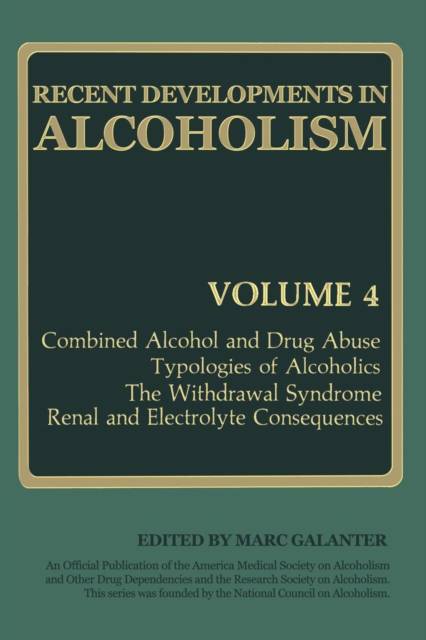
- Afhalen na 1 uur in een winkel met voorraad
- Gratis thuislevering in België vanaf € 30
- Ruim aanbod met 7 miljoen producten
- Afhalen na 1 uur in een winkel met voorraad
- Gratis thuislevering in België vanaf € 30
- Ruim aanbod met 7 miljoen producten
Zoeken
Recent Developments in Alcoholism
Combined Alcohol and Drug Abuse Typologies of Alcoholics the Withdrawal Syndrome Renal and Electrolyte Consequences
€ 335,95
+ 671 punten
Omschrijving
From the President of the Research Society on Alcoholism In recent years the alcohol research field has matured and is attracting a substantial number of eager and technically sophisticated researchers. There is a feeling of excitement and premonitions of breakthroughs as more and more of alcohol's actions are being detailed. I, however, have at times been sobered by the perception that the lure of parsimonious explanations and the appeal of studying easily demonstrable effects obscure the critical issues re- garding alcohol abuse and alcoholism. Central questions regarding (1) the reinforcing properties of ethanol and other factors responsible for inappro- priate consumption of alcohol, (2) the heterogenous characteristics (both bi- ologic and sociologic) of the alcoholic population, and (3) the differential predisposition of individuals to alcohol-induced medical problems needed to be vigorously pursued. Researchers who used animals as models for the human condition needed to become more intimately aware of the variety of factors that are of importance in the development of alcoholism in an indi- vidual. On the other hand, researchers studying humans needed to attempt to more clearly define and categorize diagnostic criteria and characteristics of various alcoholic populations. Such categorization and continued character- ization of alcoholism allows not only for a framework of concepts within which proper animal models for studies of biologic mechanisms can be de- veloped but also allows for consideration of the most apt treatment approaches.
Specificaties
Betrokkenen
- Uitgeverij:
Inhoud
- Aantal bladzijden:
- 454
- Taal:
- Engels
- Reeks:
- Reeksnummer:
- nr. 4
Eigenschappen
- Productcode (EAN):
- 9781489916976
- Verschijningsdatum:
- 12/06/2013
- Uitvoering:
- Paperback
- Formaat:
- Trade paperback (VS)
- Afmetingen:
- 156 mm x 234 mm
- Gewicht:
- 666 g

Alleen bij Standaard Boekhandel
+ 671 punten op je klantenkaart van Standaard Boekhandel
Beoordelingen
We publiceren alleen reviews die voldoen aan de voorwaarden voor reviews. Bekijk onze voorwaarden voor reviews.










